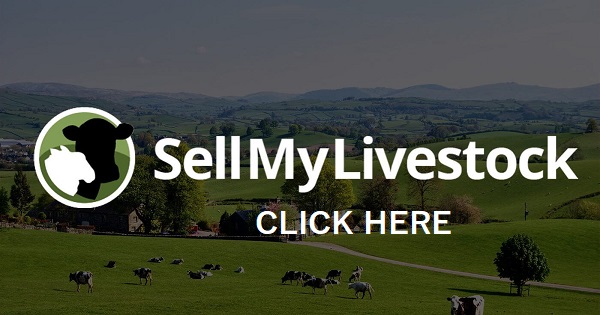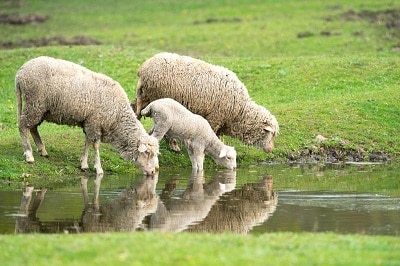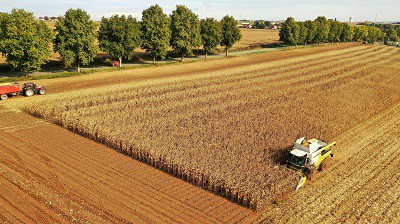Exploring Overberg Farming Livestock and Agriculture
Overberg is a region renowned for its rich agricultural landscape and vibrant communities. From picturesque towns to bountiful farmland, Overberg offers a unique blend of rural charm and economic opportunity, making it an enticing destination for both farmers and residents alike.

Population and Lifestyle: The population of Overberg comprises a diverse mix of individuals, including farmers, families, and urban dwellers. With its scenic beauty, mild climate, and welcoming atmosphere, Overberg offers a high quality of life for its residents. Whether you’re drawn to the tranquil countryside or the bustling town centers, Overberg provides a range of lifestyle options to suit every preference.
Cities in Overberg: Overberg is home to several notable cities and towns, each contributing to the region’s cultural and economic tapestry. From the historic charm of Swellendam to the coastal allure of Hermanus, Overberg’s cities offer a wealth of amenities and opportunities for residents and visitors alike. Other prominent cities in the region include Caledon, Bredasdorp, and Stanford, each with its own unique character and appeal.
Top Produce and Farming Practices: Agriculture is the backbone of Overberg’s economy, with farmers producing a wide range of crops and livestock. Among the top produce cultivated in the region are wheat, barley, oats, canola, and fruit orchards. These crops thrive in Overberg’s fertile soils and Mediterranean climate, making the region a prime agricultural hub.
Planting Seasons for Barley, Wheat, and Oats
The planting seasons for barley, wheat, and oats in Overberg typically coincide with the region’s climatic conditions and agricultural calendar. Barley is usually planted in late autumn or early winter, with wheat following shortly thereafter. Oats are typically sown in late winter or early spring, taking advantage of the cooler temperatures and ample rainfall that characterize the region during this time.
Livestock Farming
Liestock farming is another essential component of Overberg’s agricultural sector, with farmers raising cattle, sheep, and poultry for meat and dairy production. The region’s vast grazing pastures and mild climate provide ideal conditions for livestock rearing, allowing farmers to maintain healthy and thriving herds.

Overberg Farming Livestock and Agriculture
Livestock Farming: Overberg’s Agricultural Backbone
The Overberg region boasts a rich agricultural heritage, with livestock farming standing as a cornerstone of its rural economy. From expansive cattle ranches to thriving sheep flocks and poultry operations, livestock farming in Overberg plays a vital role in sustaining local communities, driving economic growth, and preserving the region’s agricultural legacy.
Cattle Ranching: Cattle farming is a prominent feature of Overberg’s agricultural landscape, with vast expanses of grazing land providing ample opportunities for ranching operations. Farmers in the region raise both beef and dairy cattle, with breeds adapted to the local climate and terrain. From the iconic Angus and Hereford breeds to indigenous cattle varieties like the Nguni, Overberg’s cattle farms contribute to both meat and dairy production, supplying local markets and beyond.
Sheep Farming: Sheep farming is another integral component of Overberg’s livestock sector, with the region renowned for its high-quality wool and lamb production. Farmers breed a variety of sheep breeds suited to the local conditions, including Merino, Dorper, and South African Meat Merino (SAMM). The rolling hills and fertile valleys of Overberg provide ideal grazing pastures for sheep, allowing farmers to sustain healthy flocks and produce premium wool and meat products.
Poultry Operations: Poultry farming is a thriving industry in Overberg, catering to the growing demand for poultry products in domestic and international markets. From free-range egg production to broiler chicken operations, poultry farmers in the region employ a range of production methods to meet consumer preferences and market demands. With modern facilities and biosecurity measures in place, Overberg’s poultry farms ensure high standards of hygiene, animal welfare, and product quality.
Dairy Production: Dairy farming is a significant contributor to Overberg’s agricultural economy, with the region renowned for its high-quality milk and dairy products. Dairy farmers utilize advanced breeding techniques, nutrition management practices, and milking technologies to optimize milk production and quality. From small-scale family-run dairies to large commercial operations, Overberg’s dairy farms play a crucial role in meeting the demand for fresh milk, cheese, and other dairy products.
Challenges and Opportunities: While livestock farming in Overberg offers numerous opportunities for farmers, it also presents challenges, including water scarcity, land degradation, and disease management. However, innovative farming practices, such as rotational grazing, drought-resistant forage crops, and genetic selection for disease resistance, are helping farmers overcome these challenges and adapt to changing environmental conditions.
Conclusion: In conclusion, livestock farming is a thriving and dynamic industry in Overberg, Western Cape, contributing to the region’s agricultural prosperity, cultural heritage, and rural livelihoods. With its diverse range of livestock enterprises, commitment to sustainable practices, and spirit of innovation, Overberg remains a vital hub of livestock production in South Africa, poised to meet the challenges and opportunities of the 21st century agriculture.
Chicken Farming and Dairy Farming
Chicken farming and dairy farming are particularly prevalent in Overberg, with many farmers specializing in these sectors to meet the growing demand for poultry and dairy products. Chicken farming operations range from small-scale free-range operations to large commercial enterprises, while dairy farms produce a variety of high-quality milk, cheese, and other dairy products enjoyed locally and beyond.

Overberg Farming Livestock and Agriculture
Grain Farming Flourishes in Overberg, Western Cape
The Overberg region of the Western Cape, South Africa, boasts a thriving agricultural landscape, with grain farming standing as one of its primary pillars. Known for its fertile soils, favorable climate, and skilled farming community, Overberg is renowned for producing high-quality grains that contribute significantly to both local and international markets.
Ideal Conditions for Grain Farming: Overberg’s agricultural success is largely attributed to its Mediterranean climate, characterized by hot, dry summers and cool, wet winters. These climatic conditions create an optimal environment for grain cultivation, allowing farmers to achieve robust yields and high-quality crops. Additionally, the region’s diverse topography, which includes fertile valleys, rolling hills, and expansive plains, provides ample opportunities for grain farming across various landscapes.
Main Grain Crops: Wheat, barley, and oats are among the primary grain crops cultivated in Overberg. Wheat, in particular, is a staple crop in the region, with both winter and spring varieties cultivated to capitalize on the different planting seasons. Barley, valued for its versatility and adaptability, is also a prominent crop, while oats are grown for their nutritional value and suitability for both human and animal consumption.
Planting and Harvesting Seasons: The planting and harvesting seasons for grain crops in Overberg vary depending on factors such as crop type, variety, and weather conditions. Winter wheat is typically planted in autumn, between April and May, and harvested in late spring or early summer, around November to December. Spring wheat, on the other hand, is sown in late winter or early spring, around August to September, and harvested in late spring or early summer. Barley and oats follow similar planting and harvesting schedules, with planting typically occurring slightly later than wheat.
Modern Farming Practices: Grain farming in Overberg has embraced modern agricultural practices to enhance efficiency, productivity, and sustainability. Many farmers utilize precision farming techniques, such as GPS-guided equipment and remote sensing technologies, to optimize planting, irrigation, and crop management. Additionally, conservation tillage practices, such as minimum tillage and no-till farming, are increasingly adopted to reduce soil erosion, conserve water, and improve soil health.
Challenges and Opportunities: While grain farming in Overberg is characterized by its productivity and resilience, farmers face various challenges, including water scarcity, pest and disease pressure, and market fluctuations. However, these challenges also present opportunities for innovation and adaptation, driving the adoption of sustainable farming practices and the development of new crop varieties resistant to local pests and diseases.
Overberg’s agricultural heritage and rural lifestyle make it a captivating destination for farmers and residents alike. With its fertile farmland, diverse produce, and strong sense of community, Overberg continues to thrive as a vital hub of agriculture and rural life in the Western Cape of South Africa.
YouTube Channel: Farming South Africa
Facebook Page: Farming Life
Back To Home Page: Farming South Africa
